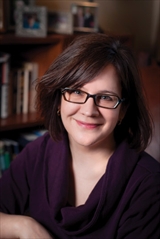Source: HarperCollins
Paperback,
I am an Amazon Affiliate
After the War Is Over by Jennifer Robson follows closely on the heels of Somewhere in France (which I read in 2014) and takes a wide look at how the world look after WWI. Charlotte Brown, friend to Lilly Neville-Ashford in the first book, sees first hand the results of war at home, as veterans are denied pensions and their families are forced to scrape by on what little work is still available for women. Through alternating chapters between the time after WWI and when she first found work after completing university with the Neville-Ashford family and befriended not only Lilly, her student, but also her brother, Edward, readers are taken through England as it prospered and as it sustained heavy losses because of the war. The losses are not just physical, but emotional and psychological for the men returning from war, as well as their families. There are monetary losses and there are losses of freedom — in the sense that women lose their jobs to returning men and men lose many of their physical abilities during the war and must adapt to a new reality.
“Women always put themselves last. Either it was the mothers she visited in the slums of Scottie Road who only ate after their husbands and children had had their fill, or it was the women from Huskisson Street who, after cleaning and cooking for days, were left with the rag end of the delicacies, with scarcely a slice of cake to share between them.” (page 145)
Even though this is considered a follow up to the first book, Robson offers enough background about the first book that this could be read as a standalone without any problems. The main focus here is the aftermath of war, the changes for both men and women in a new world, and Charlotte’s ability to cope with her new reality and still strive to improve the world around her, even in small ways. Readers who enjoy social change and movements will be swept up in the struggles of these families, just as Charlotte is. Charity is looked on as a handout by many, but Charlotte’s push to have society lend a helping hand to each neighbor on their own is just what this society needs. Rather than compete or judge others in the neighborhood, she insists on compassion.
Robson’s characters are dynamic, and Charlotte is strong willed and motivated in her efforts. When she meets a personal challenge she does take a step back, but she soon realizes that the best medicine is to tackle it head on. When Lilly and Robbie re-enter the picture, so does Edward, and this stirs up feelings in Charlotte that she hadn’t addressed and is still unwilling to admit to even herself. There’s even a great Jane Austenesque moment in this one that Robson mimics so well.
After the War Is Over by Jennifer Robson is a sweeping novel about life after the war because the immediate casualties of war are not the only tolls countries, communities, and families will be expected to take. Charlotte is a forthright, strong woman in a changing world, but she’s well aware that change cannot happen on its own or at the hands of one woman. She needs help, as we all do, and to generate change is to work together.

Jennifer Robson first learned about the Great War from her father, acclaimed historian Stuart Robson, and later served as an official guide at the Canadian National War Memorial at Vimy Ridge, France. A former copy editor, she holds a doctorate in British economic and social history from the University of Oxford. She lives in Toronto, Canada, with her husband and young children. Connect with the author on Facebook.






I’m glad you loved it, too! I can’t wait for the next book.
I thought this was it! But I’m glad there is another
You and Anna have made this sound fabulous!
I love it.